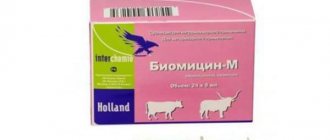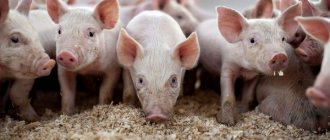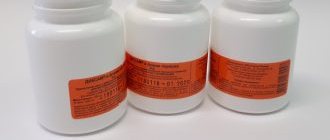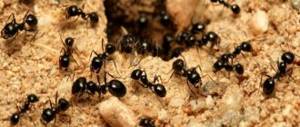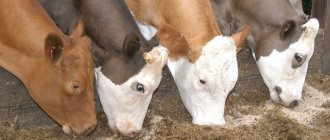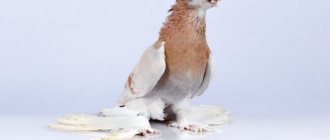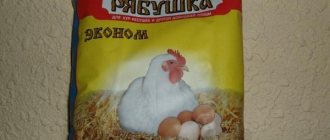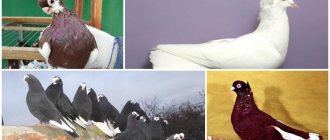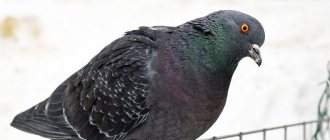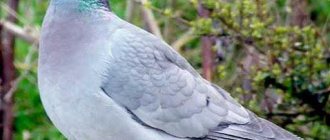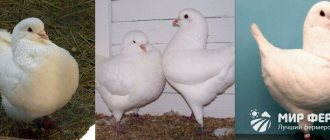Poultry farming » Pigeons
0
2263
Article rating
Kira Stoletova
There are many pitfalls in poultry farming. To raise healthy livestock that can be safely used for food, you need to carefully monitor the health of your pets. Poultry, in particular pigeons, often suffer from infectious diseases. If one bird gets sick, this can lead to the death of the entire flock. Lozeval for pigeons quickly activates the body's defense mechanisms and eliminates infection in sick birds.
Lozeval for pigeons
Pharmacology
Lozeval is an antibiotic-based drug for pigeons. It is produced in liquid form, with a consistency similar to an oil solution. The color of the drug is light yellow. The medicine is packaged in glass bottles of 10 ml. For large poultry farms it is produced in cans up to 10 liters.
The active ingredients included in the composition are morpholonium, ammonium dichloride, polyethylene glycol-9, thiosemicarbazone, dimethyl sulfoxide. The production of the drug takes place mostly in Russia. The pharmacy market offers drugs from several companies. The most common medication is Biostim.
What is it for?
The drug Lozeval, upon penetration into the body of a sick individual, is capable of affecting most known pathogenic microorganisms. Immunomodulatory and fungicidal effects make it possible to use Lozeval for birds infected with candidiasis and aspergillosis bacteria. Instructions for use recommend medication treatment for:
- salmonellosis;
- enterovirus;
- smallpox virus;
- laryngotracheitis;
- mycoplasmosis and candidiasis;
- pasteurellosis and aspergillosis.
Progress after consumption of the drug is observed in birds with paratyphoid fever, which leads to atrophy of the upper and lower limbs. It is also mixed into feed for chickens if there is a risk of infection with plague, enteritis, or adenovirus. After prevention, the bird’s body becomes less susceptible to pathogenic microorganisms.
The use of the drug prevents infection with mycoplasmosis, staphylococcus and streptococcus by 95-100%. Lozeval is often used to treat wounds after castration and cosmetic surgeries in order to prevent secondary infections.
Shelf life and storage conditions
If all storage rules are followed, the shelf life of the medicine is 3 years. Lozeval must be stored at temperatures from -10 to 40°C in a dark place. It should be noted that the medicine retains its medicinal properties in the temperature range from -10 to 50°C.
At temperatures below 10°C, the viscosity of the liquid will increase, but when heated it will return to its original state without losing its medicinal properties.
Since this medicine is quite popular, it has several analogues.
The most popular are:
- Vaccine "Biovac". This analogue was developed in Israel and is used for preventive procedures. It should be injected into the chest of the pigeon. If the bird is already infected with the virus, there is no need to use the drug.
- "Baytril." The product comes from Germany. Used to kill infections in pigeons.
Room treatment
In the first day after hatching, most chicks are susceptible to virus attack. This fact is associated with not yet formed immunity. In addition to the introduction of complementary foods with a high content of calcium and various vitamins, treatment of premises for the purpose of prevention is indicated.
The veterinary drug is given to prevent and treat all kinds of viral diseases in many animals and birds. The dose is selected according to the age, number and size of animals or birds. If water hardness exceeds 10 mEq/L, it is necessary to increase the dose by 10%. In a poultry farm, the dosage is adjusted by a veterinarian.
To prevent infectious diseases in chickens, the room in which the chicks will be located is treated in accordance with the incubation time on the 6th, 12th and 21st days. After the chicks are born, spraying of the drug continues every other day. Lozeval is included in the diet with drink. In order to prevent diseases, the duration of administration is from 5 to 7 days.
Specifics of use and dosage
Instructions for use for geese chicks are as follows: 2.5 ml of Lozeval is diluted with 0.5 liters of clean water. The dosage is calculated based on weight: per 1 kg of body weight, 10 mg of the substance per day is indicated. To prevent turkey diseases, 1 ml of the substance is recommended per 10 kg of weight. It is mixed with feed or dripped into water in a ratio of 1:2 to 1:5. The poultry house treatment system is the same as for chickens.
Instructions for use during the period of infection with streptococcus in other chicks also have their own characteristics. In the first few days after the signs of the disease appear, the room is sprayed, then mixed into the feed at a rate of 1-2 ml per 10 kg of body weight. For warning, pour 2 ml of the drug per 1 liter of water. For ailments caused by other pathogens, the dosage of the medicine is reduced to 1 ml per 10 kg of bird weight.
Instructions for use for pigeons are due to the fact that these birds are the most susceptible to viral diseases. Often this is Newcastle disease, which is very quickly eliminated by Loseval. To treat the disease, add 5-6 drops of medication to the daily water intake of one bird. The course of therapy is a week.
After three days from the end of the course of therapy, the second course begins. Lozeval is indicated for use in any birds with dysbacteriosis. For every kilogram of body weight, you need to give 0.2-0.27 ml of a substance diluted in water. For viral conjunctivitis, the medicine is dripped into the eye sockets for 3-5 days. In addition, dexamethasone is used for rinsing.
How to use
This drug is indispensable not only for treating your pigeons, but also for prevention. After all, it is able to enhance the synthesis of immunoglobulins and increase phagocytic activity. This is what leads to increased immunity.
Lozeval doses and methods of application may vary. They depend exactly on what you are using the product for in a particular situation.
For example, in case of Newcastle disease, rhinotracheitis, adenovirus infection, it is necessary to add the drug to the cereals that you use for feeding, or to the water at the rate of five to six drops per individual or ten milliliters per 150 birds. The medicine should be given 1-2 times a day for a week. Use the same doses to treat bacterial infections such as streptococcosis and pasteurellosis.
If you need to reuse the drug, it is important to take a break of three days. If you want to give Lozeval to birds for prevention, then stick to the same doses, but you need to add the drug to food or water only once a day for two days.
For diseases of the respiratory tract, pigeons need to drip a diluted drug in a five percent glucose solution in a one to one ratio into the nasal cavity. If you instill the drug undiluted, it will cause irritation of the mucous membrane.
You can also listen to the recommendations of experts and spray-cut lozeval in the dovecote. This will help strengthen the immunity of young animals and also have a preventive effect. But here, too, you need to correctly calculate the dose: 1-2 ml of the drug per square meter of room. In this case, the exposure should be 45 minutes.
One important detail should always be taken into account: if you prepare an aqueous solution of Lozeval, do this before using the medicine itself. Then the product will not lose its beneficial properties, and you will not waste the medicine.
Lozeval should be used externally if the skin of your pigeons is affected by dermatitis, eczema, burns, purulent wounds, and other dermatological diseases. In this case, you just need to lubricate the affected areas 2 times a day. The medicine should be used until complete recovery.
Lozeval is one of the most popular drugs among poultry farmers, which is not at all strange. After all, it is non-toxic, and is also capable of not losing its healing and preventive properties even when stored in rooms with too low temperatures (up to -10), as well as high temperatures (up to +50). But you should know that at storage temperatures below ten degrees, the consistency of the product changes and Lozeval becomes a viscous emulsion. Do not be alarmed and do not throw away the drug, because if the medicine is heated, its consistency will again become the same, and this will not affect its healing properties in any way.
Read also: Why are bronze broad-breasted turkeys so popular?
Lozeval has no side effects, so there are no contraindications. It can be transported by any means of transport, but you must comply with the sanitary rules that apply to the transportation of liquid medications. But keep in mind that storing the drug for more than three years after the date of manufacture is prohibited.
Use for hatchery birds and dermatoses
If the pet is in an incubator, on the first day after laying the eggs, disinfection procedures with an aerosol are practiced for several minutes. The medication is given along with drinks. The next day, the dosage and techniques remain the same. Until 21 days, the system of taking the medicine does not change.
If there is skin inflammation or damage, Lozeval is applied to the damaged areas. It is recommended to lubricate the wounds at least 2 times a day. Use the medication until the wounds and inflammation on the skin disappear completely.
Use in livestock and beekeeping
The medicine is widely used for the treatment of rabbits and dogs. When rabbits are infected with pasteurellosis, colibacillosis or salmonella, the instructions for use are as follows:
- per day, add 2 ml per 10 kg of weight to the feed for 1 rabbit;
- it is recommended to take the substance twice a day for a whole week;
- It is better to drip the medicine into the drink, because sick rabbits are reluctant to eat, but they consume a lot of liquid.
For dogs, Lozeval is widely used for parvovirus and distemper. Instructions for use for animals must be strictly followed. The dosage is calculated based on body weight: 2 ml for every 10 kg. Therapeutic course - 5 days. Exactly half of the daily dose for plague should be given orally 1:1 with sodium chloride or glucose solution. For enterritis, the medicine is diluted with sunflower oil. The remainder of the dose must be administered by enema. Within 72 hours the dog’s condition improves. At the end of therapy, the dogs are completely healthy.
In beekeeping, medicine is used to treat and prevent diseases in bees. Preventive measures are carried out after the main flight, after the first honey collection and before closing the hives for the winter. Treatment is carried out three times with an interval of 3 days. The drug is used only at temperatures not lower than 18°C. When it is not very warm outside, the medicine is diluted with sugar syrup and added to the bees’ diet.
The use of the drug can give impetus to the activation of the immune forces of the bees. The efficiency of insects increases and mortality decreases. The amount of honey increases significantly after processing. An important feature is that the medicinal substance does not accumulate in honey, it is completely harmless.
Directions for use and dosage
The dosage of the drug directly depends on what disease the pigeon suffers from.
The instructions indicate the following dosages:
- Diseases caused by viruses - 1-2 times a day or 1 ml per 10 kg of weight. Medium-sized pigeons are given a dose of 0.1 ml. The course of treatment is 5 days, but if necessary, the course can be repeated after 3 days.
- For bacterial diseases, the dosage is the same as in the previous case.
- When treating the mucous membrane of pigeons, the medicine should be prepared for use. To do this, you need to dilute the drug with 5% glucose in a 1:1 ratio. It should be dripped into the ear or nasal passages. Veterinarians use this solution in the treatment of tracheitis and laryngitis.
- To treat skin diseases, the affected areas are treated 1-2 times a day with an undiluted preparation.
For preventive procedures, the drug can be sprayed in the poultry house. The result of this will be no less effective than adding medicine to the feed. For this purpose, “Lozeval” is diluted in 5% glucose or water in a ratio of 1:2.
Spraying the drug should be carried out 2 times a day: morning and evening. Spray it for 40–45 minutes immediately after preparing the solution, otherwise it may lose its effectiveness. For every cubic meter of dovecote there should be 0.5 ml of medicine.
How it works
The complex composition provides long-lasting and effective protection against infectious diseases. The drug has a detrimental effect on pathogens and has an immunomodulatory effect. Among poultry and livestock farmers, Lozeval is very popular due to its extended spectrum of action.
The effect occurs at the cellular level, while the production of immunoglobulins is activated and phagocytic activity is improved. Even when applied to the dermis, Lozeval penetrates freely. Being in the cells of the body, the substance suppresses the division of pathogenic cells and prevents the spread of viruses, microplasma organisms, and fungi. It is not deposited in cells, but is quickly eliminated from the body through the digestive organs.
Side effects
If the instructions for use are followed, then even with long-term treatment there are no side effects. In case of overdose, loose stools and muscle weakness are noted. Occasionally, cases of allergic reactions in the form of hyperemia and itching are identified. The drug has no contraindications.
Lozeval belongs to the group of low-toxic drugs. Active substances do not accumulate in tissues and organs, but are quickly eliminated from the body. Due to this, a high therapeutic effect is achieved.
What is Loseval?
Lozeval, if we consider its composition, is a triazole compound of the heterocyclic type, which also contains morpholinium acetate, polylenoxide and some other antibiotic components. The product is available in the form of a light yellow or orange liquid. The mass fraction of morpholinium acetate can vary from 2.8 to 3.3%. In veterinary pharmacies, Lozeval can be found in packaging from 10 g to 10 liters in bottles, flasks or special buckets.
The main purpose of the drug is its antiviral and bactericidal effect against all possible microorganisms and bacteria in birds and animals. At the same time, Lozeval acts by slowing down and stopping intracellular reproduction in viruses. Unlike other known antibiotics, this drug also promotes the synthesis of mononuclear cells in the body of animals and birds. It stimulates local cellular and general immunity, thereby increasing the body's natural resistance.
When applied to external affected areas or taken orally, this drug is quickly absorbed into the mucous membranes, as a result, it quickly takes effect. First, the components of the drug block the protein of viral cells, as well as their DNA and RNA, reducing reproduction. Then additional components enhance the synthesis of immunoglobulins and increase the level of lysozyme. At the same time, Lozeval is also good for use because it does not accumulate in tissues and organs, but is quickly eliminated from the body.
When is it used?
So, the drug Lozeval has a very wide spectrum of action. He is appointed from:
- microviruses and herpes viruses;
- avian enteroviruses;
- smallpox virus;
- Marek's disease;
- Newcastle disease;
- bronchopneumonia;
- infectious laryngotracheitis;
- pasteurellosis;
- mycoplasmosis and chlamydia;
- candidiasis;
- aspergillosis and some other diseases of birds and animals.
Cost and storage conditions
Lozeval can be bought at a veterinary pharmacy without a prescription. The price of the drug depends on the form of release and varies from 20 to 2000 rubles. The substance can be used at low temperatures down to -10°C, however, when left in a cold place for a long time, the drug becomes viscous. This feature must be taken into account when feeding birds with medicine in the winter.
If the thickened medicine is slightly warmed, it will quickly return to its original state. The medication does not lose its therapeutic properties even in conditions of 50 degree heat. The shelf life is 3 years from the date of release; after opening, the drug retains its medicinal properties for 2 years. The medication should be stored at a temperature of 3 to 35°C in a dry, well-ventilated area. It is undesirable for the container with the medication to be exposed to direct sunlight.
Storage rules and periods
“Lozeval” is stored in a dark place at a temperature of -10...+40 degrees. At low thermometer readings, the liquid form of the drug thickens, but this does not affect its effectiveness. The room in which the medicine is stored must be well ventilated and inaccessible to children and animals. Shelf life – 3 years from the date of manufacture.
